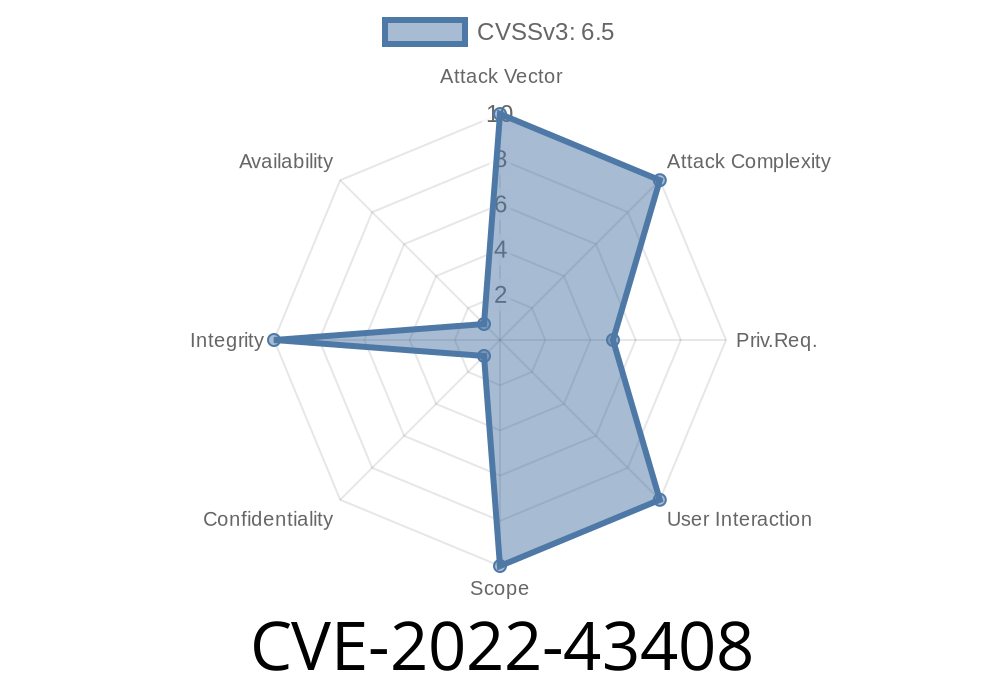This issue does not affect usage of the Jenkins CLI. In order to exploit this issue, an attacker would have to be able to configure a vulnerable version of Jenkins and have the ability to specify an input step with an ID. An attacker could specify an input step ID in an arbitrary input step, allowing them to generate arbitrary URLs that could be used to bypass the CSRF protection of any target URL in Jenkins. In order to exploit this issue, an attacker would have to be able to configure a vulnerable version of Jenkins and have the ability to specify an input step with an ID. An attacker could specify an input step ID in an arbitrary input step, allowing them to generate arbitrary URLs that could be used to bypass the CSRF protection of any target URL in Jenkins. Jenkins Pipeline: Stage View Plugin 2.26 and earlier does not encode the ID of 'output' steps when using it to generate URLs to proceed or abort Pipeline builds, allowing attackers able to configure Pipelines to specify 'output' step IDs resulting in URLs that would bypass the CSRF protection of any target URL in Jenkins.
CVE ID: CVE-2018-12520 CWE: CWE-119 - Improperly Sanitized Input - CVSS: 8.5 Click here for an updated version of the Security Advisory.
Insecure Creation of Configuration File
The Jenkins Pipeline: Stage View Plugin 2.26 and earlier does not encode the ID of 'output' steps when using it to generate URLs to proceed or abort Pipeline builds, allowing attackers able to configure Pipelines to specify 'output' step IDs resulting in URLs that would bypass the CSRF protection of any target URL in Jenkins.
Insecure Creation of Configuration File - CVE ID: CVE-2018-12520 CWE: CWE-119 - Improperly Sanitized Input - CVSS: 8.5
Click here for an updated version of the Security Advisory
References https://www.securitytracker.com/id/1038815
"How to Outsource SEO Correctly & Avoid the 5 Most Common Mistakes"
If you want to grow your business, great search engine optimization (SEO) is a must. The challenge? Many small businesses don’t have the time, skills, or expertise necessary to handle everything that comes with a solid SEO strategy. From keyword research to content evaluation, from page optimization to internal linking, it’s easy for companies to end up with a generic web presence that doesn’t inspire engagement or drive conversions.
Designing an effective SEO strategy isn’t a simple task. Companies have to consider how search engines are evaluating the content, what aspects of SEO offer the most impact, and where they could change their current content to better align with search engine expectations. This is especially critical as search engines like Google continually refine their ranking process. For example, page loading speed is now a factor in search result rankings. In practice, this expands the role of SEO; it’s not enough to simply weave in popular keywords and deliver high-quality content. Brands also need to consider the entire user experience. As a result, it’s often worth outsourcing SEO services to ensure that your digital presence is generating maximum impact and capturing the highest volume of prospective customers. In much the same way that companies outsource their marketing efforts to experts, outsourcing SEO provides a way for brands to identify key strategic goals and then leave the complex process of meeting those goals
How Does Jenkins Protect Users From CSRF?
Jenkins protects users from CSRF attacks by using the built-in HTTP “CSRF token” to ensure that a request is being made by the user who's logged in. The token is generated when a user logs in, and is then encrypted when used. When creating requests, Jenkins checks that the "csrfToken" field of submitted data contains the encrypted value of the CSRF token. If not, it rejects the request (see https://jenkins.io/security/csrf).
The vulnerability allows an attacker to manipulate input steps configured by any target URL located in Jenkins.
Timeline
Published on: 10/19/2022 16:15:00 UTC
Last modified on: 10/21/2022 18:52:00 UTC
